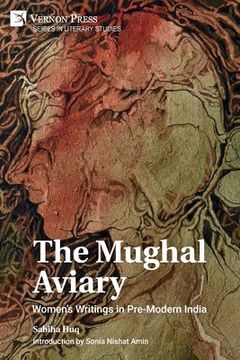Synopsis "The Mughal Aviary: Women's Writings in Pre-Modern India"
This volume delves into the literary lives of four Muslim women in pre-modern India. Three of them, Gulbadan Begam (1523-1603), the youngest daughter of Emperor Babur, Jahanara (1614-1681), the eldest daughter of Emperor Shah Jahan, and Zeb-un-Nissa (1638-1702), the eldest daughter of Emperor Aurangzeb, belonged to royalty. Thus, they were inhabitants of the Mughal 'zenana', an enigmatic liminal space of qualified autonomy and complex equations of gender politics. Amidst such constructs, Gulbadan Begam's 'Humayun-Nama' (biography of her half-brother Humayun, reflecting on the lives of Babur's wives and daughters), Jahanara's hagiographies glorifying Mughal monarchy, and Zeb-un-Nissa's free-spirited poetry that landed her in Aurangzeb's prison, are discursive literary outputs from a position of gendered subalternity. While the subjective selves of these women never much surfaced under extant rigid conventions, their indomitable understanding of 'home-world' antinomies determinedly emerge from their works. This monograph explores the political imagination of these Mughal women that was constructed through statist interactions of their royal fathers and brothers, and how such knowledge percolated through the relatively cloistered communal life of the 'zenana'. The fourth woman, Habba Khatoon (1554-1609), famously known as 'the Nightingale of Kashmir', offers an interesting counterpoint to her royal peers. As a common woman who married into royalty (her husband Yusuf Shah Chak was the ruler of Kashmir in 1579-1586), her happiness was short-lived with her husband being treacherously exiled by Emperor Akbar. Khatoon's verse, which voices the pangs of separation, was that of an ascetic who allegedly roamed the valley, and is famed to have introduced the 'lol' (lyric) into Kashmiri poetry. Across genres and social positions of all these writers, this volume intends to cast hitherto unfocused light on the emergent literary sensibilities shown by Muslim women in pre-modern India.

